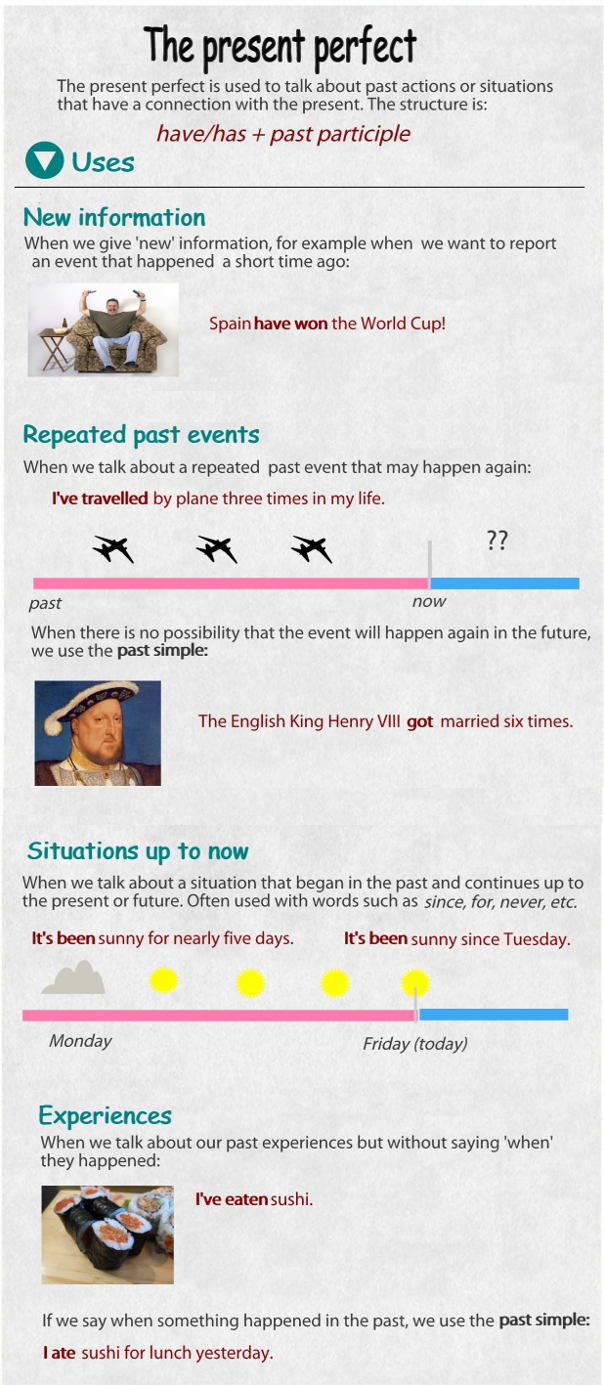The present perfect simple is an important tense in English. Its structure is very simple:
have/has + past participle
However, many speakers of other languages have problems with its use. The graphic below presents the main uses of this tense. If you want to use the present perfect in speaking, it helps to listen to native speakers and notice how they are using the tense.

Hi,your information is really helpful,it clears my doubts about Using the present perfect simple in my essays,thanks a lot
This site is very helpful I have learnt a lot from it .All expressions are good and new to my ears.
thanks for providing appropriate information
its very good and simple information thanks
i will use present perfect easly
What is the difference between “related past events” and “experiences”?
I feel they are similar.
I understand the confusion. Think about experiences as “things you have done in your life”. The focus is on your whole life (or a period of time up to now), not on a particular time in the past. For example, “I’ve had a very interesting life. I’ve visited lots of countries, I’ve met lots of interesting people …” With past events, you focus on a particular time in the past, e.g. “I visited France last year”.
Thank you!
This website is really helpful
Many thanks
Thanks, very useful for me.
Good job
Thanks a lot ❤🌸